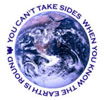Media
Content
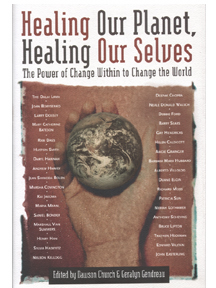
'The human race is in the midst of an evolutionary leap. The evolutionary leap is characterized primarily by a capacity to perceive in a new way. This capacity is so unique to our past experience that it produces something of a crisis in the world. It is interesting that the chinese ideograph for crisis is the combination of opportunity and danger. We are beginning to face the dangers, but we need to understand the wonderous opportunities that await us.
The technology and scientific advances primarily characterized by Einsteins' physics brought us not only the atom bomb with it's capacity to annihilate the world, and the ability to put satellites in space for total communication on the planet, it has actually set us up so that we must learn to love one another. Learning to communicate, to feel one another, and to understand the other person's reality and experinence creates an almost miraculous expansion of the whole.
This vision of the evolutionary leap is in almost every religon, every political situation. Every political vision and goal cares for this moment when we really fufil our potential and our abilties. I don't think it's an accident that we only use one-tenth of our brains and that all human beings feel that it should be different—it should be better. Through our personal commitment to heal ourselves, to be open when it is difficult, to heal fear wherever we find it, we make room for genuine trust—which will lead to the common sense and a wonderfulness of peace'
"These were my opening words when I met with the Sovier Woman's Commitee in Moscow in May 1985.
These women—prominent doctors, lawyers, magazine editors, and the first woman astronaut—in response to this breif statement, embraced me with a reverence and genuine respect that their conterparts in America would probably not have offered in a similar situation."
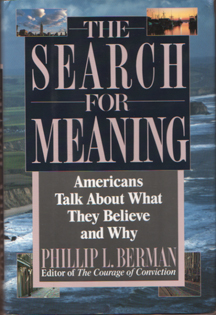
"...the human race, when it open's up to this other hemisphere, will become more intuitive. And to be intuitive, you've got to release control. Instuition is about leting go. Unfortunately the sins of the fathers are visted upon the children—the garbage of our unconscious just keeps getting handed down.
Our world is a tremendous reflection of wanting to have control right now, and that's why it is so full of garbage. Think of the rather insane things that are done in the name of control: drug issues, the sexual abuse of children, psychological abuse of children, eating disorders, television addiction, shopping compulsions—all the escape 'isms.'
I mean many of the problems we face today exist because we are holding back against our own intuitive side. We are hating ourselves because we think in either-or terms."
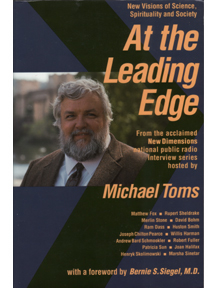
"a new style of thinking is itself the process, the mechanism, the medium through which our brains can integrate this change in consciousness. It has a lot to do with integrating the left brain and the right brain. It means using your intuition, thinking with imagery—pictures and feelings and spatial wholes—as well as the linear and verbal thinking that we consider normal logical thinking. Both of these modes are valuable, and both are necessary.
In different cultures and societies, one or the other of these modes tends to dominate. Globally, right now, we're predominantly linear and logical. This is true even in the East, which has been noted for its intuitive style of thinking.
The new style of thinking expresses a "win-win" instead of "win-lose" attitude. The common "either-or" type of thinking sets you up to always have a loss; it is always locked in some way. A spatial-whole style of thinking gives an overview, lets you get more information at a single glace, lets you be receptive.
In our culture, to say that someone's not logical is tantamount to saying they're stupid, or at least wrong. But alogical thinking, acausal thinking, thinking that just gets an answer, is the essence of creativity. You go into a kind of daydreamy place, and something pops in.
Abraham Maslow, a psychologist who studied creative people, showed that the creative process always involves a fallow moment, a still moment, where you're not trying, and you open up; you ask earnestly, and then you let go. And then something pops in that's bigger than anything logic can give you, and sometimes it delivers information that never existed before."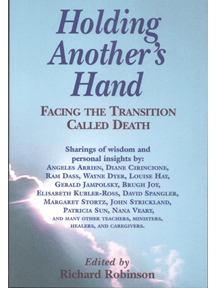
"Through hundreds of experinces I have realized it is the very same healing energy you send someone to get well, as it is to die well—so there is no conflict. You don't have to be manipulating anything, you just send this great loving calm. And if the person is choosing to get well, it helps them to get well, and if the person is not going to get well, it helps them die well. It is just a great calm love, and immense heart-filled calm love..."
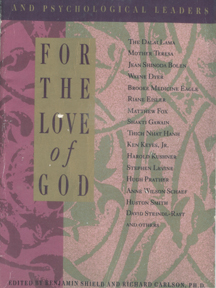
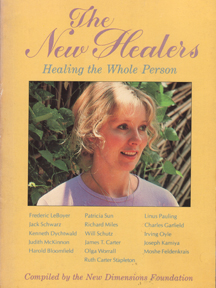
"The only reason we're not expressing and being all that we can be is because we've bought as truths our limited view of truth.
We've been programmed and conditoned psychically with the unconsious fears of our parents and family, our associates and our mass culture. Each of us in a body has been powerfully programmed. Nobody escapes it. Each of us absorbs the collective unconscious in our own special way, given the particular point in time and space that we come into being. We are primarily a sponge from the moment of conception through the first seven years of our lives, complexly absorbing unconscious energy dynamics. A major part of what we absorb is unsated fear.
We live in terror of things we never experienced. A lot of pain and suffering results from these fears."
